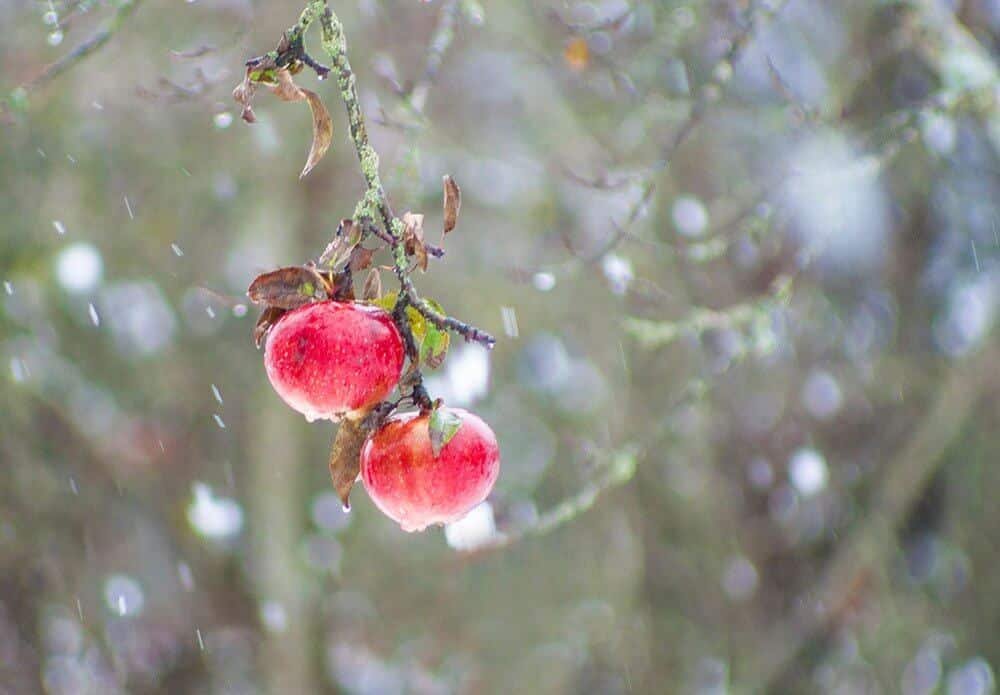6 Ways to Care for Fruit Trees During the Winter Season in Western North Carolina
Your fruit trees’ needs decrease during winter, particularly for water. Nevertheless, there are still steps you can take to maintain their health and ensure their survival through the winter.
This article will teach you how to care for your fruit trees during the winter, ranging from a small lemon tree to a mature orchard of trees.
1. Check and Replace Mulch
Mulching, like many tree-care tasks, is an ongoing process. If you haven’t evaluated the state and thickness of the mulch around your fruit trees since summer, winter is the time to make sure it hasn’t decomposed to the point of needing a refill.
The ideal mulch depth is 2-4 inches, or less if the soil drains poorly. For finer or more dense mulches, like pebbles, a depth of 1-2 inches is sufficient to allow adequate oxygen and water access to the roots.
2. Checking for Weather Damage
With proper care and regular trimming and pruning, fruit trees should be robust enough to handle typical winter weather. Nonetheless, it is crucial to inspect your trees after any harsh storms.
After heavy winds or storms, inspect your fruit trees for broken or fallen branches. Removing them promptly helps protect your property from unwanted pests, lowers fire fuel, and creates a safer environment.
3. Watch For Proper Draining
Ensure the orchard is draining properly. Excessive rain that falls too rapidly without proper drainage can harm fruit trees. Soggy, wet trunks are not happy trunks. Ensure your trees still have proper drainage.
4. Weed and Feed
Rain encourages weeds, which can compete for water and nutrients with your fruit trees if left unchecked. Some trees may also require nutrient-rich amendments, depending on the species.
5. Check For Pests
During winter, some tree-eating pests remain active and continue to cause harm. Conducting a visual check on your trees can identify issues before they become fatal.
Regularly inspecting the vicinity of your fruit trees is crucial to preventing pest infestation. Tall grass and nearby vegetation can provide shelter for harmful insects. In spring, pests that may have remained dormant in winter will multiply and spread to your trees and other parts of your property.
6. Covering Fruit Trees Before Frost
Western North Carolina can have some frigid temperatures during the winter months. It is vital for your fruit tree’s health to keep an eye on the forecast and ensure you have coverings ready to protect frost-sensitive fruit trees, especially citrus varieties.
Schedule Your Annual Tree Check-Up With a Local Certified Arborist
If you find you still have questions about caring for your fruit trees in winter or would like a professional to examine the health of your trees, the certified arborists at Earthworks Tree Services can help.
Each of our arborists is fully licensed and insured. Our team has over twenty years of experience, and we can help your trees survive and thrive through every season. Contact us today to request your free estimate!

